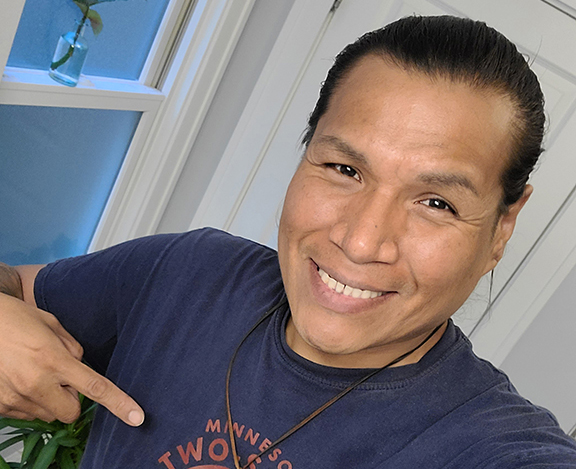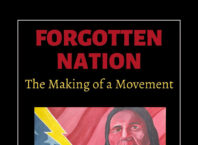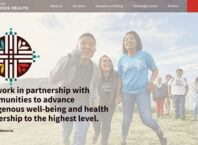
By Erin Mathe
Jase Roe has vivid childhood memories of their mom coming home with big bottles of Vicodin prescribed for her pain. Roe didn’t know it at the time, but that was their first introduction to opioids.
Roe and other Native Americans speak candidly about their own opioid addiction experiences on a new Minnesota Department of Health (MDH) podcast series called “Stories from the Field” aimed at addressing the evolving opioid epidemic.
The goals of the podcast series are to provide a voice to those who have experienced substance use disorder, offer resources to those helping people who use drugs make safer choices, and to illustrate the complexities of the epidemic. The podcasts host a series of experts in the health care field, as well as community leaders and others devoted to reducing the number of Minnesotans affected by this crisis.
Two of the podcasts focus on the opioid epidemic specifically in the Native American community.
How it All Began
Roe believes over prescribing of opioids in the Native American community is where the problem started.
“We get hit the hardest and it’s not just one generation, it’s generational,” Roe says. As a Case Manager at Homeward Bound Behavioral Health Treatment Center, they see the reality of addiction every day. Roe cites an MDH report that from 2010 to 2019, there was a 178% increase of opioid use in the Native American Community that resulted in abuse.
Roe struggled with addiction for years, saying heroine caused at least one overdose where they needed to be brought back to life.
“Addiction is a 24 hour a day, 7 day a week job,” Roe says. “You need to stay ahead of it, so you don’t come down. It’s constantly on your mind and it’s all you can think about.”
Roe believes that having been through opioid addiction and being a member of the Native American community and sharing those experiences are the best ways to help other Native Americans.
“No one even looked at the opioid issue until it hit the white community,” Roe says. “But on a reservation, once you introduce opioids and they spread, now you have people who are caught, thrown in jail, and you have a whole community left addicted to opioids.”
Providing Access to Services
Roe says the efforts of organizations like Homeward Bound help meet people where they are. Simple barriers like not having a phone to call for an appointment or reliable transportation to get there make it hard for people to access services. Roe says if people can get to the center, they can access harm reduction services such as clean needles to prevent infection, or Naloxone or Narcan, a medication designed to rapidly reverse opioid overdose. Those kinds of treatments are not always accepted due to the stigma of drug addiction.
“Even in a hospital, you face bias, racism and judgment,” says Dr. Ryan Kelly, Assistant Professor of Medicine at the University of Minnesota Medical School.
“And then you get home, after your treatment ends, and who is more likely to have resources? Someone in the suburbs with a support system, or someone who’s homeless? Access to resources is a big factor,” Kelly says.
They’re both proponents of Medically Assisted Treatments, or drugs approved by the FDA for the treatment of opioid dependence, such as buprenorphine, methadone and naltrexone. All three treatments have been demonstrated to be safe and effective for those struggling with addiction. They help normalize brain chemistry by blocking effects of opioid, reducing physical cravings and helping treat withdrawal symptoms.
“Not everyone believes in those treatments,” Roe says. “I’d rather have someone on methadone than shooting up.”
Turning Experience into Action
Another podcast interviewee is Curtis Jackson, an Alcohol and Drug Counselor for the Leech Lake Band of Ojibwe. His addiction experience lasted 19 years, resulting in a lost marriage, lost jobs, losing contact with his children and other lost opportunities. Today Jackson is celebrating five years of sobriety and firmly believes that recovery is possible.
“Along the way, I fought for my kids and I fought for my recovery and I got a second chance at life,” he says.
He started “The Sober Squad” in Grand Rapids, a recovery support organization that now has 22 chapters in Minnesota. He sees his kids regularly, has a great job, and like Roe, is happy to be giving back to the community.
Both Roe and Jackson chose to speak on the podcast to help others who have struggled with addiction and may not be able to find their way out.
“I’m not ashamed of my journey,” Roe says. “The big thing is taking away stigma and getting the word out that these are our sons, daughters, uncles, aunts, moms and dads. In our culture, we’re all related. Natives need to help Natives. There’s no better way to help.”
Podcast One Tool of Many
The “Stories from the Field” podcast series tells real stories from real people throughout the state and are just one tool in MDH’s opioid overdose prevention work. The series reveals the raw emotions of people who have battled substance misuse, lost loved ones, and managed to get through it. The diverse group of guests represents communities of color, tribal communities, the LGBTQ population, and a variety of economic backgrounds.
Community advocates, medical professionals and other front-line prevention specialists discuss the problem, efforts to destigmatize substance use, and possible solutions.
“We know that every death by overdose is a preventable death,” says Minnesota Health Commissioner Jan Malcolm. “We need to set our sights on providing support and resources to all Minnesotans who are affected by opioid use disorder, and all communities where substance use leads to personal, family, and community suffering.”
“Podcasts are just one way the Injury and Violence Prevention section at MDH engages with our communities to address the emerging opioid crisis,” said Dana Farley, injury and violence prevention supervisor. “By featuring the work being done throughout the state, we hope to leave listeners with a sense of hope and that help is available.”
To listen to the 5-part podcast series, visit Stories from the Field at: https://www.health.state.mn.us/communities/opioids/communities/fieldstories.html#historyofopioids.
For information on MDH’s Opioid Overdose Prevention website page, see: https://www.health.state.mn.us/communities/opioids.






